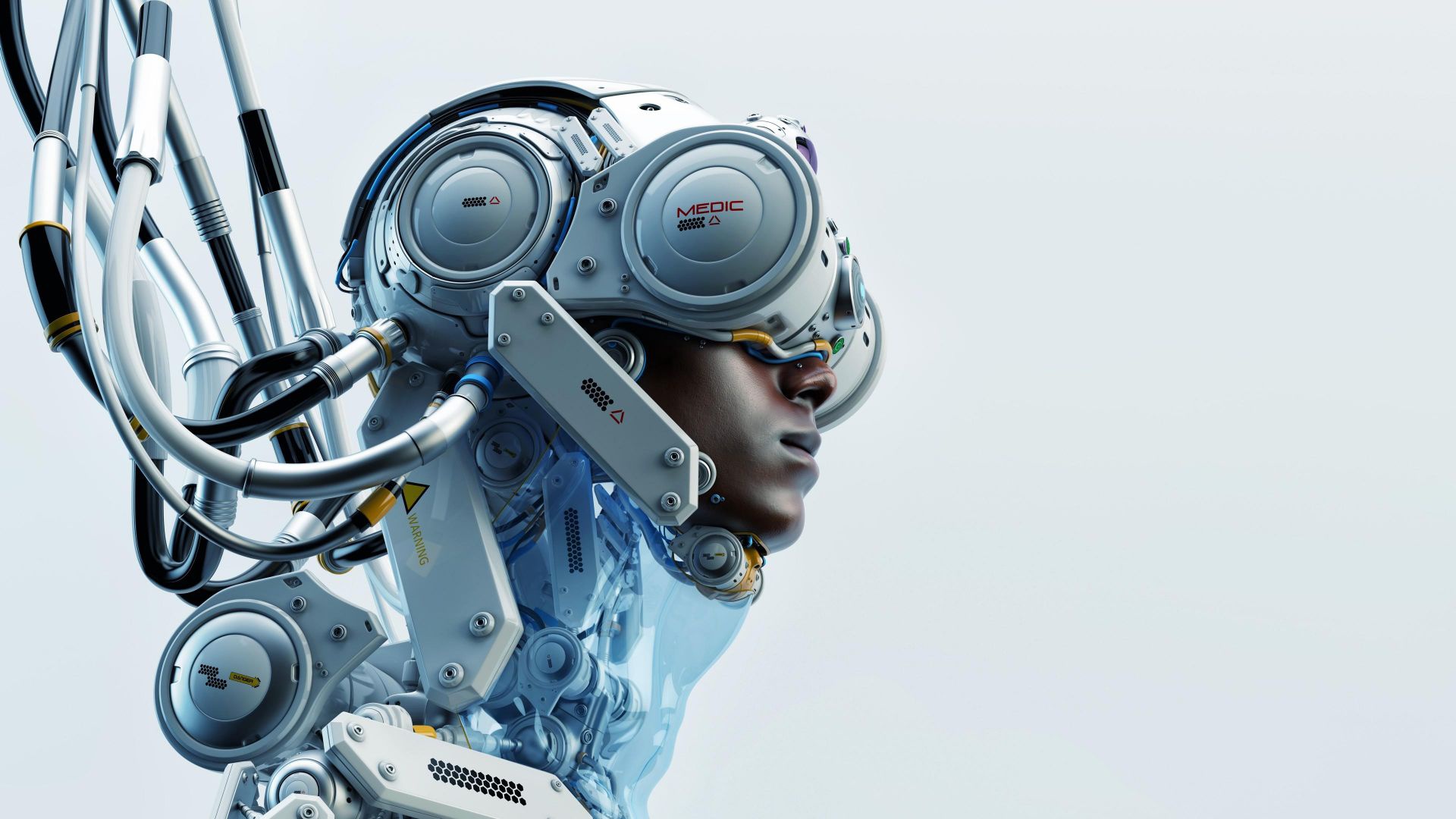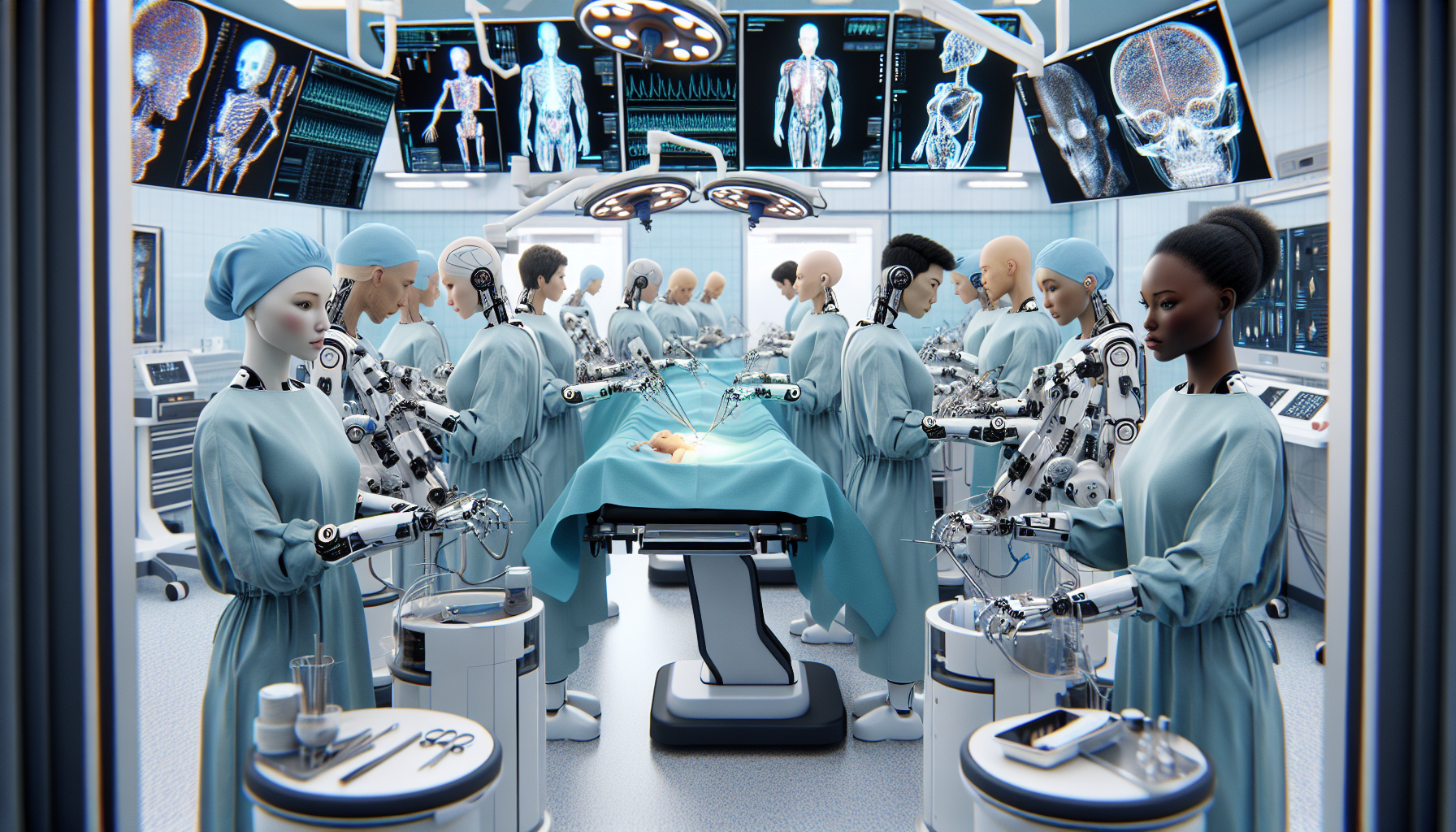 ## Advanced AI Medical Robots: Revolutionizing the Operating Room
## Advanced AI Medical Robots: Revolutionizing the Operating Room
The healthcare sector is setting the stage for a revolution. Advanced AI medical robots are playing a pivotal role, enhancing accuracy and precision in operating rooms. The integration of artificial intelligence (AI) and robotics in the medical field, particularly in surgeries, is heralding an era of reduced human error and improved patient care.
Going Beyond Human Limitations
One of the significant benefits of integrating AI and robotics into surgery is their superior motor control compared to humans. This allows doctors to perform surgeries with minimal invasive cuts and reduce the risk of errors. Despite the rigorous training, surgeons can make mistakes due to fatigue or distraction, which AI and robotic systems can’t experience.
These AI-guided robots don’t replace human surgeons but work alongside them. They are designed to operate in smaller, sensitive spaces with less motion as surgeons guide them. Current examples have shown that robotic surgeries result in fewer complications and less blood loss.
AI-Powered Implants: A Deeper Level of Care
Beyond the operating room, AI-powered robots are also making an impact on medical implants. Robotic surgical implants can monitor a patient’s health post-operation or administer medication over time, ensuring better ongoing health. AI makes these implants less intrusive and more effective.
These robots are typically made of hypoallergenic materials like liquid silicone rubber, which is resistant to bacterial growth. They can comfortably sit inside a patient’s body without disturbing the surrounding tissues, preventing complications.
AI allows these robotic implants to decide when to inject certain medications and how much to administer. This personalized approach promotes better patient outcomes by providing the care they need as their bodies change.
The Future of Surgery: Remote Operations
AI-powered robots could be the key to solving the global shortage of medical workers, expected to reach 10 million by 2030. These robots can be remotely controlled by experts from anywhere in the world, providing life-saving surgeries to patients who otherwise couldn’t access them without traveling.
AI technology ensures that these remote surgeries are safe and reliable. It can detect and counteract any potential lag or errors in real-time, ensuring patient safety despite the surgeon not being physically present.
Conclusion
AI-guided medical robots are not here to replace human surgeons but to assist them. These innovations have already shown their potential in improving patient safety and healthcare accessibility. As technology continues to evolve, the role of AI and robotics in surgery is only set to grow, marking a new era in the medical field.
Questions & Answers
1. How does AI and robotics improve accuracy in surgeries?
Artificial intelligence (AI) and robotics improve accuracy in surgeries by offering superior motor control compared to humans. This allows for minimal invasive cuts and a reduced risk of errors.
2. How can AI-powered implants benefit patients after surgery?
AI-powered implants can monitor a patient’s health post-operation or administer medication over time. They can decide when to inject certain medications and how much to administer, providing personalized care as the patient’s body changes.
3. What is the role of AI in remote surgeries?
In remote surgeries, AI technology ensures safety and reliability. It can detect and counteract any potential lag or errors in real-time, ensuring patient safety despite the surgeon not being physically present.
4. Will AI-guided medical robots replace human surgeons?
No, AI-guided medical robots are not designed to replace human surgeons but to assist them. They can operate in smaller spaces with less motion as surgeons guide them, allowing human surgeons to use their talents to their full potential.
5. What is the future of AI and robotics in surgery?
As technology evolves, the role of AI and robotics in surgery is set to grow. They will continue improving patient safety and healthcare accessibility, marking a new era in the medical field.